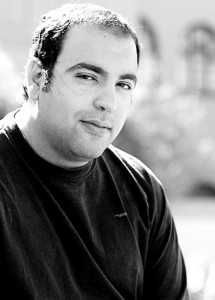
With the year winding down, it’s time to count this year’s winners and losers.
Winners:
1) The Nour Party: Hands down 2013’s biggest winner is the Salafi Nour Party. It played its hand perfectly after 30 June, recognising its symbolic importance to the 3 July coalition on both national and international levels. The party managed to make political gains they wouldn’t have dreamed of under the MB: they swayed the constitution to maintain the Sharia clauses, have members working in the transitional government and secured themselves as a vital wing of the state. More importantly, they survived, which is more than can be said about other Islamist political players.
2) The Egyptian Social Democratic Party (ESDP): Despite getting criticised left and right for the performance of the transitional government, the ESDP can now boast as the only “civil” party to have both legislative and executive experience in the Egyptian state, with both the PM and the Vice PM of the transitional government from its ranks. It remains to be seen whether they can leverage this to get more funding or increase their reach, but politically they are light years ahead of their competition.
3) The military: They solidified their power, crushed the Muslim Brotherhood, got everything they wanted from the constitution, their leader remains the most popular “politician” in the political field and have definitely put a halt to the “down with military rule” rhetoric, while seemingly not ruling. Nicely played on the short term, remains to be seen if they can maintain these gains in 2014.
4) The State: Its institutions remain virtually unchanged and unreformed. This is a win for this parasitic entity, one it will likely to carry to the next presidential term, as it will take a president with unrealistic level of political capital to implement the structural reforms it needs to function. The judiciary, which is the only remaining functioning branch of the state, got everything it wanted from the constitution and one of their own sits in the Presidential chair.
5) The anti-MB crowd: With the MB removed from power, in prison, on the run and their demonstrations crushed, the anti-MB crowd definitely got their wish. The world could be burning outside their window, and they will still be satisfied.
6) The independent Egyptian movie industry: 2013 had three theatrical releases which employed new and unconventional production methods. Three other Egyptian films swept the Dubai Film Festival, while Jehane Noujaim’s documentary on the revolution ”the Square,” is short-listed for an Oscar, the first ever Egyptian movie to do so.
The Losers:
1) The Muslim Brotherhood: Complete failure at governance. Complete failure in employing terror tactics against their critics. Complete failure in negotiating the post 30 June landscape. Their name has become an accusation and an insult. Further, they just lost the Doctor Syndicate’s election fair and square, for the first time in 22 years, which included a long history of misappropriations of funds and corruption that the new board is promising to uncover.
2) Human rights: Mass arrests, Rabaa, silencing of dissent, tarnishing the reputation of human rights activists and organisations, with a general population that has announced that it couldn’t care less about human rights, given the mortal threat they perceive from Islamists.
3) The 25 January revolutionaries: Holding very little sway over the current debate, the revolutionaries of the 25 January Revolution find themselves at their weakest point, with a new protest law that they seem powerless to stop or confront. As expected, “lemon sellers” like Alaa Abdel Fatah and Ahmed Maher – those associated with supporting former president Mohamed Morsi, in the presidential elections and therefore hated – find themselves imprisoned and facing dubious legal charges, with public support and blessing.
4) The secularists: The growing minority- whose glory days ironically were under Islamist rule- find themselves in utter frustration. They thought after the removal of the MB from power that the people would go for a secular constitution and reject the participation of the Nour Party in it. Defeated on both fronts due to their underestimation of the other religious institutions of the state, chiefly the church and Al-Azhar, they are openly starting to question if Egypt will ever be secular.
5) The feloul: Despite all of the analysis on their return and influence, the feloul find themselves with very little to show for it. Their symbols Tahany Al Gibaly, Mostafa Bakry, and Tawfik Okasha were not even included in the Constituent Assembly, or the interim government. The case against Ahmed Shafiq is still ongoing, eliminating his chances to return to the country or run in the next elections. The favorite candidate of the feloul, General Abdel Fatah Al-Sisi, has expressed his desire not to run in 10 million ways so far. Their only hope, is parliamentary elections, which no one knows composition or timing of. Bitter doesn’t even begin to describe how they feel.
6) The police: Despite the rhetoric of the return of the police state, the Egyptian police are definitely this year’s biggest losers. Not only are they expected to bring order and security to a country that has become the embodiment of functional chaos between the Islamists, protesters and organised crime. They are also now facing assassinations, a trend which will increase over time as MB and Islamist elements become more and more radicalised by unchecked police brutality. They may have shielded themselves from criticisms or pressures to reform for the time being, but the public’s patience with their antics is running short, and they can’t shield themselves from the physical payback of all of their brutality in the past six months and they know it. For them, the bad times are just getting started.



